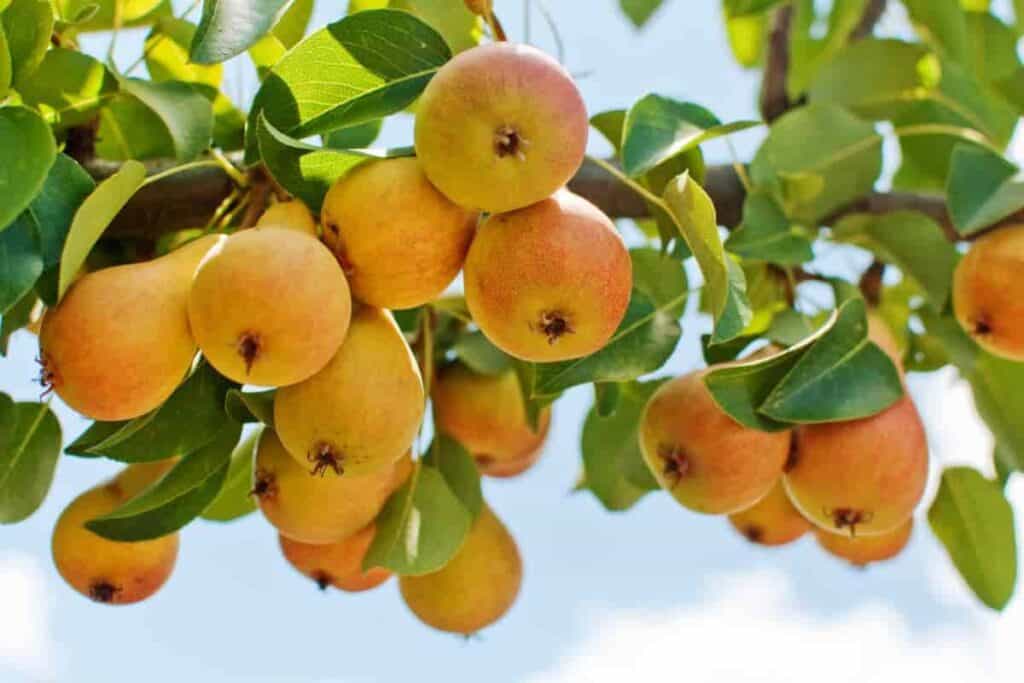Regrettably, the pleasure of avocational gardening should never be marred by altercations among neighbors over property lines, invading tree roots, wayward vines, and overhanging fruits.
Yet we must admit that the history of the goddess Pomona is not entirely free of wrangling over her bounties and the behavior of her subjects.

Back in 1650, an English court expressed the opinion that “if fruit from an overhanging bough falls to the ground on the adjoining landowner’s property, the owner of the tree may enter upon his neighbor’s land to gather it.”
But that was over 300 years ago — and in England.
Most Outstanding Feud in America
By far, the most outstanding feud of its kind in America began in 1835 and lasted several years. One Lyman owned an immense pear tree that stood wholly on his land.
However, some of its branches overhung the land of his neighbor, Mr. Hale, who took the privilege of picking several bushels of pears from those projecting branches. Lyman took Hale to court but lost the case.
The next autumn, Hale, emboldened by his success, not only harvested the fruit from the overhanging branches but surmounted the fence, gathered, carried away, and converted to his use, without permission, five bushels growing on the main part of the tree.
Lyman brought Hale into court a second time for trespass and theft.
Hale contended that he was a joint owner of the tree because its roots extended over into his rich garden and derived nourishment from that place. He had taken back only that of which Lyman’s tree had robbed him.
The claimant held that he rightfully owned the entire output of the tree, not only because the movement of the roots was beyond his control but also as a reward for his pruning and cutting out borers.
It seems Hale had taken no active part in maintaining the tree. Furthermore, he had annoyed the owner by standing within sight, rubbing his stomach, and smacking his lips in gluttonous anticipation while his neighbor was laboring on the tree.
As a Result of This Suit
Protracted at great length, the court ruled that “if A owns a tree on the extremest limits of his land, and the tree extends its roots into the land of B adjoining, A and B are tenants in common of the tree.”
Hale, therefore, was acquitted. Lyman appealed to the supreme court of the state, and the lower court’s decision was reversed.
Thus, he was vindicated and given the exclusive right to all fruit of his tree. After several years of strife over children, dogs, chickens, and one thing and another, the tree was involved again.
Hale’s wife got up on the fence one night to “snitch” a few fruits. The alert Lyman discovered her, crept up and shoved her off. She broke her “limb,” as it was referred to in court. That cost the old boy $500.
Finally, Hale backed off all the branches overhanging his property and severed the roots which ran into his garden. The tree failed to survive the shock and died. So did Hale — that same winter.
44659 by Ray Koon
